|
7/10/2014 How is your bedside manner?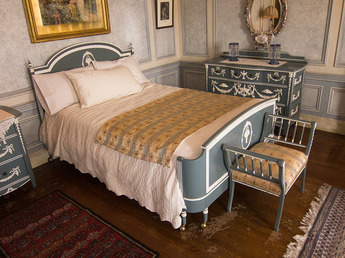 It's more than just what you say, or even what you do with a patient. Bedside manner, the good and the bad of it, extends to what you think, how you think, and what you do when you are NOT at the patient’s side. Christian healer and teacher Mary Baker Eddy understood that the morality and the spirituality of the practitioner affect outcomes on their cases, regardless of their method of practice. How did she know? Experience. Before the discovery of the scientific method of divine healing, which she would name Christian Science, Mrs. Eddy practiced – and later abandoned – homeopathy. A woman came into her homeopathic practice with a case of what was then called dropsy and today would likely be called edema due to congestive heart failure. The woman had been unsuccessfully treated by another homeopath, whose dosage of medicine caused an apparent bad reaction. Mrs. Eddy took the case and treated according to her understanding of proper dosage, and the woman steadily improved. But Mrs. Eddy soon discovered that, in fact, her prescription was identical to that of the prior physician – the same type and dosage that under his care produced horrible side-effects and under her care resulted in improvement. Why were the outcomes different? She later would explain in her textbook on Christian Science, “The doctor’s mind reaches that of his patient …His thoughts and his patient’s commingle, and the stronger thoughts rule the weaker. Hence the importance that doctors be Christian Scientists.” (Science and Health with Key to the Scriptures, 197) She also wrote, “The moral and spiritual facts of health, whispered into thought, produce very direct and marked effects on the body.” (ibid 370) 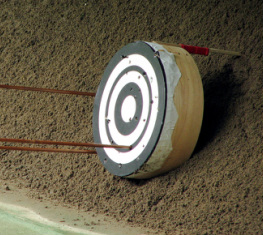 About that homeopathy case and other cases like it, Mrs. Eddy later noted that she was always praying to God to keep her from sin, and to guide her in her care for others. The Greek word for “sin” is Hamartia (Ham ar TEE ya) which can be translated ‘to miss the mark”. To be kept from sin includes to be kept from making mistakes and to hit the mark rightly in all things. "The doctor’s mind reaches that of his patient… “ Mrs. Eddy encouraged healers of all methods, medical doctors included, to clean up their thoughts and life of anything that might affect their patients adversely. She wrote, " If hypocrisy, stolidity, inhumanity, or vice finds its way into the chambers of disease through the would-be healer, it would, if it were possible, convert into a den of thieves the temple of the Holy Ghost, — the patient’s spiritual power to resuscitate himself." (ibid 365) I read that one day and thought, "Hypocrisy? Stolidity? Inhumanity? Vice? Who me?" Then I remembered a case where I asked something of a patient – to consider a spiritual concept more deeply – that I had not and was not doing myself. His healing did not come. When I realized my error, - the hypocrisy even - of demanding something of someone else that I was not practicing myself, I got to work and did the assignment. Then the man was quickly healed. What about stolidity? It's the state of being unmoved mentally, impassive, unemotional. Had I ever been stolid in my treatment work, perhaps going through the technical motions but stopping the prayer before I felt the mental movement of the Holy Ghost in my consciousness? Hmmm. 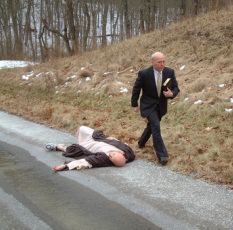 How about in my life? Had I ever passed by someone in need without praying? Or put on a hard face when confronted with poverty or crime in the street or on the news? I could see I could do better for my practice by eliminating all traces of stolidity from my life. Inhumanity? Now here I was really sure I was innocent. But then I asked myself if I had ever delayed to pray for someone until I was finished working on something else. Had I ever put my personal needs before someone in pain or suffering from fear? I remember the time I forgot to treat a patient that I had agreed to pray for. I got busy with another commitment and hours passed before she got the help that she had requested and that I had agreed to give. That's neglectful. Putting selfish interest before the needs of others, too, is cruel. Neglectful, cruel and inhumane are synonymous. What about vice? Well, we all know my Oreo cookie story. (Listen here if you don’t.) Look. This post isn’t about true confessions. I am talking about cleaning up one’s bedside manner to be a better transparency for the healing Christ. We can all likely do better. I know I can. In fact, until we consistently heal instantaneously, we must DEFINITELY do better. In Christian Science practice, the healer has to be sharp and aware. His treatment must witness to the Holy Ghost and its healing action on the patient. But if the healer is distracted or preoccupied by unhealed hypocrisy, stolidity, inhumanity, or vice, he may not be as sharp and as aware as he needs to be of what the Christ, through the Holy Ghost, is doing for the patient. Here are two tips for improving your bedside manner.
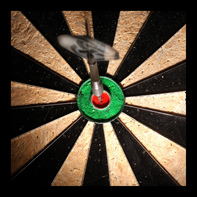 We want to be good, really GOOD at helping and healing, right? Good bedside manner involves more than a friendly face and a kind word. Regular prayer to be kept from sin and asking God or guidance on cases should unmask and destroy any lurking sin that would prevent one from being a genuine aide. Don't let yourself be stuck in self-condemnation or guilt. Science and Health is quite clear on this point. Mrs. Eddy explained that they, along with a faltering or doubting trust in Truth, God, "are unsuitable conditions for healing the sick. Such mental states indicate weakness instead of strength… You must utilize the moral might of Mind in order to walk over the waves of error and support your claims by demonstration.” (Science and Health, 455) Christ Jesus gave wise counsel to all healer’s: “First cast out the beam out of thine own eye; and then shalt thou see clearly to cast out the mote out of thy brother’s eye.” (Matthew 7:5) And the Daily Prayer reminds us to "let the reign of divine Truth, Life, and Love be established in me, and rule out of me all sin." (Manual of The Mother Church, Article 8, Section) Patients, too, have a role to play in healing. No free passes here! My next post will speak to this recently unpopular and sometimes touchy point. Not a subscriber and want to be?
It's easy! Just sign up in the sidebar. You may also wish to: VISIT MY WEBSITE HOME PAGE FIND LINKS TO MY OTHER PUBLISHED CONTENT LISTEN TO A COLLECTION OF MY "YOUR DAILY LIFT" 2-MINUTE PODCASTS
Béatrice
7/10/2014 12:05:29 am
Dear Michelle, what an important and helpful post - so clear and precise! I have recently given much thought to this subject, and what you wright is so good. I especially love where you tell us how you simply changed your approach when you saw your error (it's where you talk about hypocrisy). You did not waste time with self-condemnation, you just changed and did what you needed to do. That's so helpful for me. I can see how often I waste time and energy in condemning myself for something instead of just switch and do better. Thank you so much!
Michelle
7/10/2014 02:50:21 am
I am sooo glad you said that, Béatrice; You will see that I made a small edit at the end of the post to address that point specifically after tyou wrote your comment. The quotes were there. But your insight showed another method of sin to claim to crack our armor and obstruct our good work. Mary Baker Eddy wrote that error uncovered is two-thirds destroyed, and the remaining third destroys itself. We have to be alert however to not simply exchange one sin (hypocrisy, for example) for another (perpetual self-condemnation). To be truly "uncovered," sin has to be unmasked as having no real power over us. Then "Poof". Watch it go!
Béatrice
7/10/2014 10:14:25 am
I love that :-) : "Poof". Watch it go!
Betty T
7/10/2014 10:25:16 am
Another gem! Love Beatrice's insight about self-condemnation and your instant response with an addendum.
Michelle
7/10/2014 10:44:14 am
Yea, sometimes we don't treat ourselves very nicely. But the first step in treatment is to find your authority as the reflection of divine Love to heal the case. We ourselves are the first patient! Comments are closed.
|

Find me on YouTube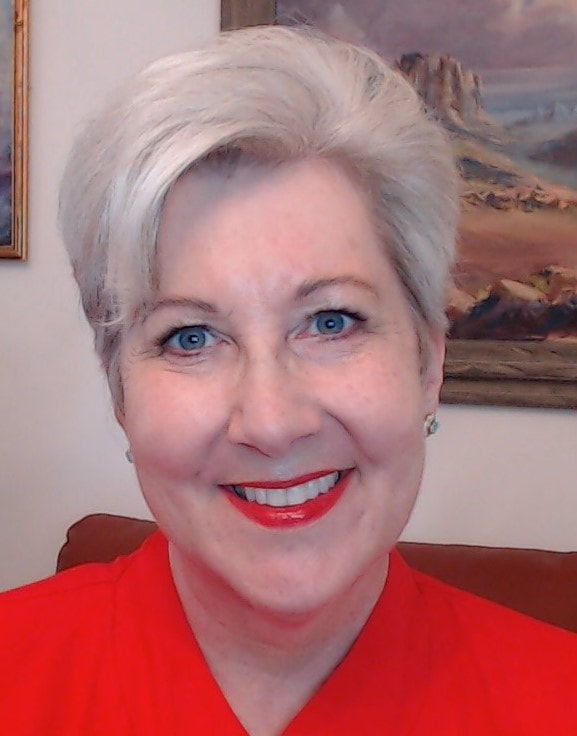
I have practiced Christian Science professionally in some form since 1979. But my journey with Christian Science started in a Sunday school where as a young child I was taught the Scriptures and some simple basics of Jesus' method of scientific Christian healing. A significant experience at the age of twelve opened my eyes to the great potential of this practice. After impaling my foot on a nail, I prayed the way I had learned in Sunday school. Within moments the pain stopped and healing began. By the next morning the wound had disappeared completely. Having experienced the great potential of Christian Science, there would be no turning back. |
INFORMATION |
SERVICES |
HELP |
© 2011-2024 Michelle Boccanfuso Nanouche, CSB. All rights reserved. Pages updated July 1, 2024.

 RSS Feed
RSS Feed
